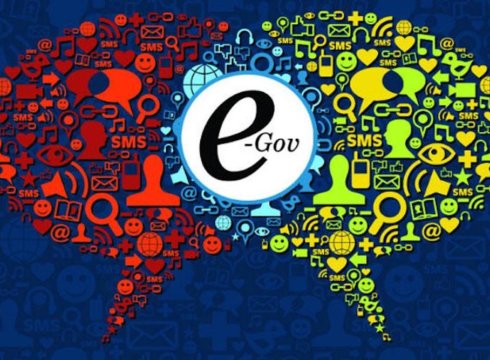Inc42 Daily Brief
Stay Ahead With Daily News & Analysis on India’s Tech & Startup Economy
The PM Modi ‘Digital India’ drive has added one more milestone to its kitty. In a bid to strengthen the development of e-governance software applications, the Government has launched OpenForge – a platform for open collaborative development of e-governance applications.
The announcement was made during the 10th International Conference on the Theory and Practice of Electronic Governance (ICeGOV) in Delhi, held on March 7, 2017.
The initiative is in line with the IT Ministry’s 2015 ‘Policy On Collaborative Application Development by Opening the Source Code of Government Applications,’ which states: “The objective of this policy is to promote reuse, standardisation, innovation, quality improvement, and cost savings through collaboration and avoidance of duplication.”
Announcing OpenForge: Govt of India’s open collaborative development platform! Think “Github for Indian eGovernance” https://t.co/GsmK09GhQC
— Amit Ranjan (@amitranjan) March 7, 2017
Why Develop OpenForge Now?
‘Digital India,’ an ambitious project of the Modi Government, currently stands on the strength of 9 key pillars.
Of these, e-governance, E-kranti, and information for all can be connected with the development of the OpenForge platform.
There are globally recognised source code repositories available such as Github and SourceForge and open source communities like Linux, Mozilla, Apache, Android, Drupal, WordPress etc., driving innovation and low-cost development across the technology world. However, these platforms have certain limitations, making them inapplicable to most e-governance processes.
As stated in the official press release, “OpenForge is a specialised platform solely for Indian e-governance and civic applications. Additionally, many government departments may not be able to use these external platforms due to restrictions on the sharing of code/data on foreign hosted servers (outside India). OpenForge will enable these departments to collaborate and adopt open source development practices in a free manner.”
OpenForge provides tools for managing projects, tasks, changes, defects, documents as well as version control, continuous integration, and social collaboration. The project could range anywhere from applications, frameworks, languages and libraries, to SDKs, APIs, datasets, components, and plugins.
It is targeted to help Central and State Government Departments, and other Government Agencies providing public services electronically, Government, and private organisations engaged by Government departments, other application developers, OEMs, audit agencies etc. Also, corporates, students, startups as well as developers can use it to make software applications.
In simple terms, OpenForge will help these departments avoid developing applications from scratch and use those already available and running successfully in other departments. Also, it will play a pivotal role in preventing duplicity and fragmentation in e-governance projects, thereby helping build various software applications more collaboratively and faster. .
Key Advantages
- Reduce the pain and cost of creating own project source code repository and collaboration infrastructure.
- For having access to tools such as commercial version control, defect tracking and task management, no premium needs to be paid.
- Different peers can save their information in a safe and reliable project environment inside OpenForge.
- Software teams will become more efficient and productive.
- Projects, software development cycle, tasks, incidents etc. will become easier to manage and monitor.
Key Features
Project administration: It allows two types of projects, private and public. Private projects are limited to Government departments and are not listed publicly. On the other hand, any user can register a public project as long as the project is related to e-Governance.
Trackers: When a new project is created on OpenForge, a bug tracker, a task tracker, and a support request tracker are automatically created for the project. The standard trackers provided for each new OpenForge project are: Bugs, Patch, Support Requests, Tasks, Scrum Backlog. If required, new fields can be defined or the existing ones can be customised.
Version control with git: Git support has been designed to support multiple repositories for a given project as well as “Personal repositories” for each developer. One can access their Git repository either from OpenForge or favourite Git tool.
Document manager: This helps in quickly publishing documents that are critical to the developer’s community of users. Examples are: Installation, Administration or User Guide, API documentation, Frequently Asked Questions, etc…
Communication tools: OpenForge offers a series of communication services that can be customised by the project team. These include mailing lists, the news service, the web Forums.
As PM Modi rightly said,
“Access to governance has to be guaranteed with transparent systems that deliver responses and outcomes. The strengthening of democratic governance empowers the population to become active partners in the growth process.”
Other measures taken by the government to reform processes through technology are Form simplification and field reduction, online applications and tracking, online repositories for certificates, documents etc. and Integration of services and platforms such as Aadhaar, Mobile Seva and more. Also, process has been initiated to make it mandatory the availability of all databases and information in electronic form.
Note: We at Inc42 take our ethics very seriously. More information about it can be found here.


